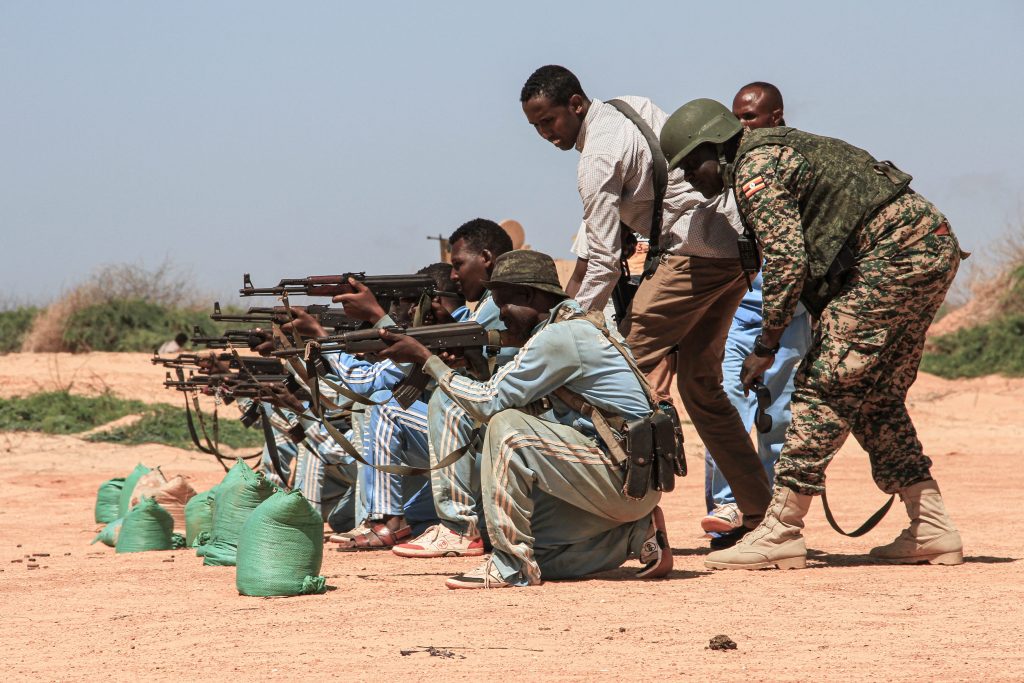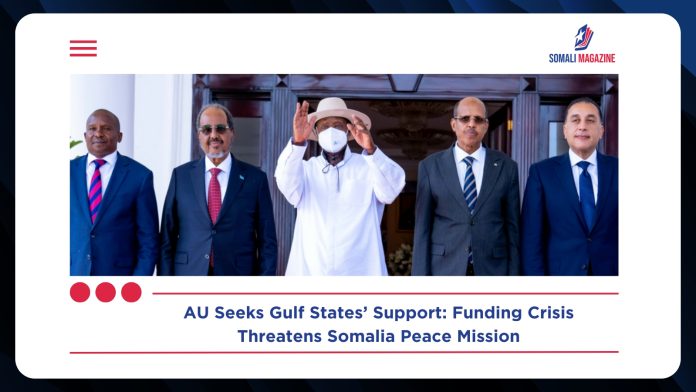Facebook Twitter (X) Instagram Somali Magazine - People's Magazine
The African Union (AU) is actively seeking financial backing from Gulf states to sustain its peacekeeping mission in Somalia, as international funding shortfalls threaten the stability of ongoing operations. The AU Support and Stabilization Mission in Somalia (AUSSOM), which replaced the AU Transition Mission in Somalia (ATMIS), faces a critical funding gap following delays in securing contributions from traditional donors.
AU officials have intensified diplomatic engagements with Gulf nations, including Saudi Arabia, the United Arab Emirates, and Qatar, urging them to step in as key financial partners. The AU Chairperson, Mahmoud Ali Youssouf, emphasized the importance of predictable funding, stating that Somalia’s security remains a priority for regional stability. He reiterated that without sustained financial support, efforts to combat Al-Shabaab and other extremist groups could be severely compromised.
The funding crisis stems from the United Nations’ failure to authorize a new financial framework for AUSSOM by its May 15 deadline. Under the proposed model, the UN was expected to cover 75% of the mission’s costs, with the AU and other donors contributing the remaining 25%. However, the delay has left AUSSOM struggling to meet operational expenses, prompting the AU to explore alternative funding sources.

The AU’s outreach to Gulf states aligns with broader geopolitical shifts, as Middle Eastern nations expand their influence in Africa through security and economic partnerships. Saudi Arabia and the UAE have previously supported counterterrorism efforts in the Horn of Africa, making them potential contributors to Somalia’s stabilization mission.
Somalia’s President Hassan Sheikh Mohamud has welcomed the AU’s initiative, stressing that regional cooperation is essential for maintaining security and fostering economic development. His administration has been actively engaging with Gulf nations to secure investment in infrastructure and energy projects, further strengthening diplomatic ties.
Security analysts warn that without immediate financial intervention, AUSSOM could face operational setbacks, potentially allowing extremist groups to regain territory. The AU remains optimistic that Gulf states will recognize the strategic importance of Somalia’s stability and commit to funding the mission.
As negotiations continue, the AU’s ability to secure Gulf funding will be crucial in determining the future of Somalia’s peacekeeping efforts. The outcome of these discussions could reshape regional security dynamics and influence long-term stabilization strategies in the Horn of Africa.

